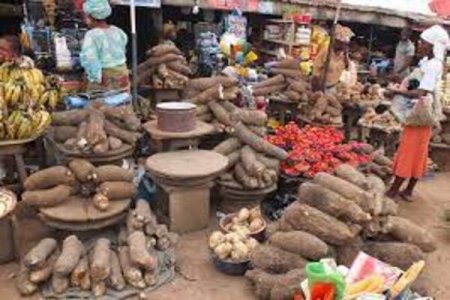
In a startling revelation, the National Bureau of Statistics (NBS) discloses a surge in Nigeria's headline inflation rate, reaching 28.20% in November compared to the previous month's 27.33%. This data, published in the Consumer Price Index for November 2023, signals a significant 0.87% point increase, raising concerns about the economic trajectory.
The NBS report indicates a year-on-year spike of 6.73% points from November 2022, highlighting the current inflation rate as 21.47%. This substantial rise suggests a sustained upward trend, with the month-on-month basis revealing a 2.09% rate for November, surpassing October's 1.73%. The implications are clear - the cost of living is accelerating at a faster pace.
Key Points:
- Year-on-Year Surge:
- The report underscores a 6.73% point year-on-year increase, painting a stark picture of the economic challenges facing Nigerians.
- Month-on-Month Acceleration:
- November witnesses a 2.09% month-on-month inflation rate, outpacing October by 0.35%. The accelerating pace raises concerns about the purchasing power of citizens.
- Food Inflation Escalation:
- The food inflation rate climbs to 32.84% on a year-on-year basis, reflecting an 8.72% point surge compared to November 2022. Bread, cereals, oil, fat, and other staples experience significant price hikes.
- Month-on-Month Food Inflation:
- The month-on-month food inflation rate rises to 2.42%, indicating a 0.51% increase from October. Staples such as bread, cereals, oil, and fat contribute to the heightened costs.
- Twelve-Month Average:
- The twelve-month average food inflation rate for the period ending November 2023 stands at 27.09%, reflecting a considerable 6.68% point rise from the previous year.



![Today's Naira Rate [14-05-2024]: Naira Depreciates to N1,520.40 Against USD, Amid Forex Shortage](/data/attachments/203/203959-8457c57119a478bc5717b11aa4a694ef.jpg)
